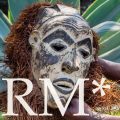Prof. Dr. Ismunandar, the new chair of the Expert Panel on Indonesia’s Cultural Heritage Repatriation Team, opened the discussion by explaining that repatriation has long been a critical issue. “Since 1975, several cultural artifacts have been returned to Indonesia.
For instance, in 2019, approximately 1,500 objects were repatriated after a museum in the Netherlands was closed. The process has continued in a more structured way between 2022 and 2023,” he noted.
He explained that the Dutch government currently has a repatriation policy that acknowledges colonialism as a historical injustice. If it’s proven that an artifact was taken without consent, it must be returned in principle.
He stressed that provenance research plays a vital role in any repatriation claim. Without strong documentation of an object’s origin, it becomes difficult to justify its return.
“The Netherlands values dialogue and allows repatriation requests not only from governments, but also from Indigenous communities and royal descendants. However, these requests must still go through official ministry channels.”
Another speaker was Prof. Mayumi Yamamoto of Miyagi University, Japan,. She shared her perspective as an anthropologist who has conducted extensive research on World War II in Indonesia. She noted that since the Meiji era, many Japanese cultural artifacts have changed hands and ended up abroad. However, Japan has not actively sought their return.


